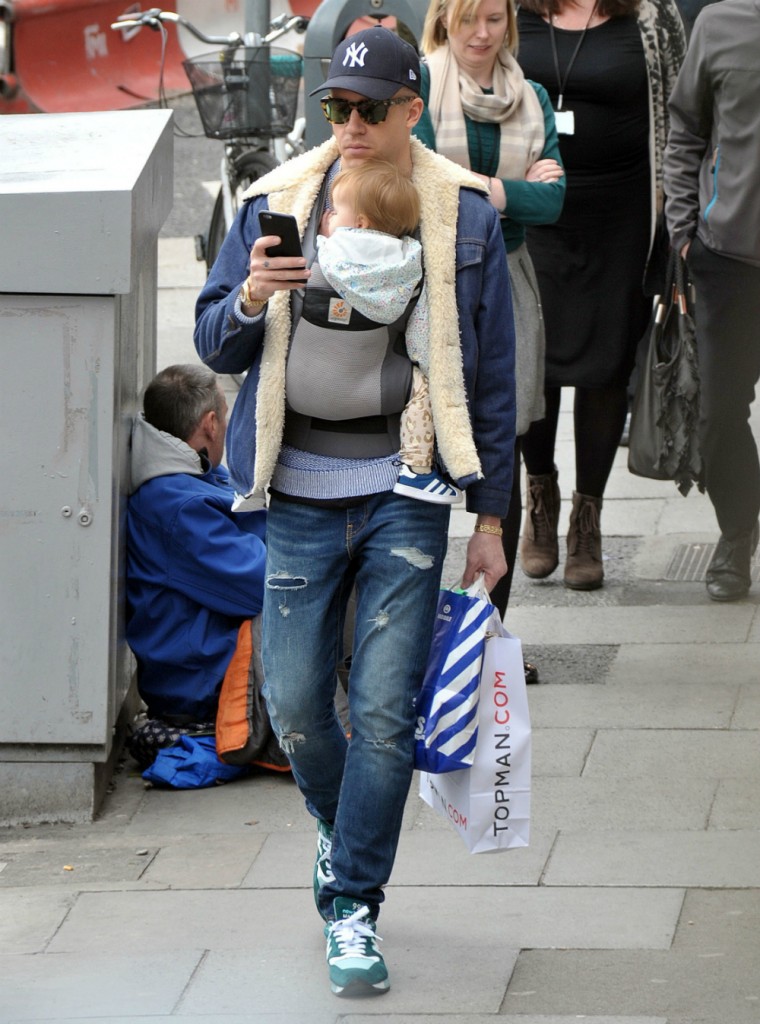Macklemore lent both his voice and testimony about his struggles with addiction to President Obama’s Weekly Address over the weekend. Macklemore, who is a recovering addict from both alcohol and pain killers, spoke not only of his battles but also the loss of his friend who died at age 21 from an opioid overdose. Although the president and Macklemore praised recent House supported bills on opioid use, they stressed the need for further funding for treatment and education to address this nationwide issue.
Grammy Award-winning rapper and Seattle native Macklemore joined President Barack Obama in the president’s weekly address to discuss drug addiction and call for politicians to fund recovery programs.
“So addiction doesn’t always start in some dark alley — it often starts in a medicine cabinet,” Obama said.
The U.S. House of Representatives passed several bills during the past week to fight opioid addiction, but the Obama administration says the legislation does not provide enough money to expand treatment.
Macklemore, 32, whose real name is Ben Haggerty, has been open about his prescription-drug and alcohol addictions. He was first arrested at 15 and ended up in King County Juvenile Drug Court. He entered rehab in 2008. During the Saturday address, he mentioned his friend Kevin, who died at 21 from an overdose of painkillers.
The hip-hop artist is sober, but his struggle with addiction is an ongoing process, he’s said previously.
“Addiction is like any other disease — it doesn’t discriminate,” Macklemore said during the address. “It doesn’t care what color you are, whether you’re a guy or a girl, rich or poor, whether you live in the inner city, a suburb, or rural America. This doesn’t just happen to other people’s kids or in some other neighborhood. It can happen to any of us.”
Macklemore is “an advocate who’s giving voice to a disease we too often whisper about: the disease of addiction,” Obama said.
As Obama cites, the CDC says opioid overdose fatalities, including heroin, have increased 200% since 2000 and have overtaken traffic related deaths. The main push of Obama and Macklemore’s message is that the bills passed so far do not cover treatment – especially on-going – for addicts; an issue close to Macklemore who relapsed with sleeping pills just two years ago. They also stress the need for education for doctors about the administering and weaning off of these drugs.
CB’s post on Jamie Lee Curtis last week made opioid addiction personal for me. Jamie’s description of her suffering reshaped the pain killer addict in my mind from a faceless abuser to sounding like a handful of people I may know. I am now paying much more attention to the discussions surrounding opioid treatment.
To end on a lighter note, after he sat down with the president, Macklemore’s mother, Julie Schott, talked him into crashing a wedding in DC.
Here is the Weekly Address: A Conversation About Addiction:
Photo credit: Fame/Flynet and WENN Photos and Snapchat


















Not a fan of his music but Mack strikes me as a really good dude. Nice to see him teaming up with POTUS on an important and personal subject matter.
Agreed! He seems to have a good heart.
Is that his kid he’s toting?
Sure is! That’s his daughter Sloane. She’s ADORABLE.
Addiction is as destructive as any other illness. Health illness or mental health illness are equal in my book and it’s time we take away the stigma.
Kudos to Macklemore and POTUS. Also, Van Jones had a really good piece on all of this movement about everyone getting serious about finding solutions for drugs. It is awesome and much needed that people are waking up to the awful policies from the “War on Drugs,” but at the same time, for POCs it’s incredibly frustrating (and pretty much a slap in the face) that addicts are being humanized now that the overwhelming majority victims are White.
Eh, it’s no so much race as it is class. For example, there’s been a brutal meth epidemic raging in low-income Caucasian communities for years now, but it’s largely unknown (and I come from one of those places, so I know my stuff on this). Poor white people, contrary to popular opinion, rank very low on the ladder of those people care about. And their rural status makes it super easy to ignore them (again, something I know plenty about).
The current epidemic is attracting attention not because the victims are white, but because they’re middle to upper class.
Agreed. I live in Oklahoma and once you’re out of Tulsa or OKC, the more rural you get the more out of control the meth and drugs are. It’s insane. I had a friend who taught at Kingston and the amount of kids openly passing drugs and the parents letting it slide was so mind boggling that he took a job in another district. He didn’t want his kids exposed to that.
Also because they are white. Look at the amount of POC in prison due to drug use (this goes back to the 80s). Similarly the legalization of marijuana. Please acknowledge that this was a war on race long before the rich kids started overdosing. Now it’s a disease, in black neighborhoods it was a crime.
Lucinda: but here’s the interesting thing: although more POC get arrested for drug crimes, white people generally are sentenced to more, because the drugs favored by white people (opiods, meth, etc.) carry harsher sentences. Back in the 80s, crack carried the highest sentence, but that’s no longer the case. Meth is sentenced extremely harshly because the government wants to dissuade people from cooking it and blowing up a sizable chunk of land. And almost all meth cookers and users are white. Same thing with opiates. So while the data is correct that more POC get arrested for drugs, more of the time actually served for drugs is done by white people. Please acknowledge this part of it as well.
@Lucinda – Exactly. People want to overlook the “War on Drugs” as though it was simply about the drugs.
@Sam – Where are you getting your data?
I want that hounds tooth coat!!!
Glad this is out there and that they are talking about the lack of treatment. When an addict finally decides it’s time to stop or when they end up in the hospital & want treatment, there should be treatment available. Not just detox for three days, but good rehab available.
Yes. A former co-worker of mine is an addict who recently relapsed and he keeps alternating between the hospital and the streets. He stole a friend’s car and has threatened suicide by train. It’s been harrowing. He needs a good long stay in rehab or I fear he won’t be with us much longer.
I am so sorry! That sounds terrible. Hopefully, since it is a relapse, he will remember his life off drugs and get help. It’s so hard when the addict is out of their mind like he sounds like. I hope some sanity comes his way.
I was listening to an NPR show this weekend talking about how addiction is such a deadly disease yet it is the one where help is not readily available. You can od, go to an ER, say you want help & they ask you to come back in a few weeks….maybe.
Rehab, without insurance, costs about $30,000 where I live. For one month!!!! And once addicts decided to get help, they usually don’t have $30k lying around.
I give him credit for even talking about it.
The painkiller epidemic is hard to discuss because it challenges preconceived notions about drugs and users. We are taught to believe that the dealers getting people hooked are scary guys on corners and in shadows, and now they’re well-intentioned doctors in hospitals, and that makes people uncomfortable. We don’t want to think that we could go into a hospital for something we need and walk out with the potential to be an addict.
We also need to accept that we can’t really remove all pain and negative feelings from our lives. There are decent non-pharmaceutical pain relief options, but none of them work quite like the pills. Reading more about chronic pain management has made me realize that it might be unrealistic to expect to live pain-free for my entire life. We need to provide better help to people who are already addicted and also need to try to change the culture to prevent it from happening in the first place.
I have chronic pain in both of my feet and I don’t take any painkillers exactly because of this. I am so scared of getting hooked, I’d rather live with pain and try to find other ways to subdue it to a bareable level.
Legally prescribed drugs can be as damaging as illegal substances. Glad to see someone so public talking about it.
I am grateful that Macklemore is so forthcoming about his continued struggles. Relapsing is a constant threat and it doesn’t always happen with the drug you started out abusing–it is a lifelong battle.
Addiction is extremely difficult to deal with when the addict has constant chronic pain. Both will ruin your life but personally, I’d rather deal with addiction and pain management than be in constant pain.
Regardless. It. Never. Goes. Away.
On the flip side, people who depend on and are productive citizens because of opioid pain relief should not be denied access to the medication that makes their lives possible because of addicts. The vast majority of people who take opioid pain killers are not addicts. They may be dependent on the medication, the way I am dependent on Zoloft and suffer wicked withdrawal symptoms if I forget to take it, but that doesn’t make them or me “drug addicts.” The media has had too much fun with sensationalizing these stories. They also neglected to give data on how many people who died of overdoses died of drug intoxication, that is, taking numerous drugs that potentate each other and not taking their medications as prescribed.